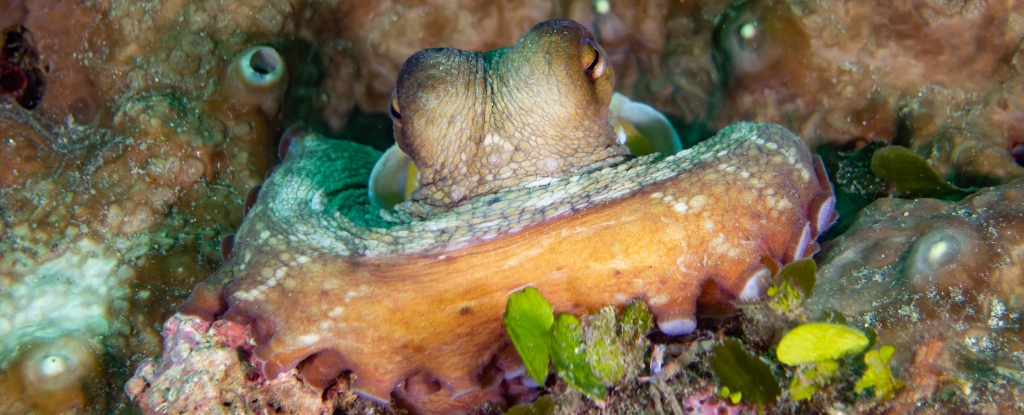Scientists have observed unusual behavior in an octopus that, in their opinion, resembles waking up from a nightmare.
It was a cephalopod named Costello filmed 24 hours a day in a laboratory at Rockefeller University in New York for a month.
The researchers said in a report that the animal woke up on four occasions “surprisingly” before engaging in “anti-predator and predation behaviours”, changing color and waving its arms erratically. condition Posted last week on bioRxiv.
In two instances, the octopus shot black ink into the water—a common tactic used to escape predators—even though there were no predators present.
The behavior indicated that the octopus was in a temporary state of distress, which the scientists said might indicate it was reacting to a disturbing dream.
“It was really strange because he looked like he was in pain; it looked like he might have been in pain for a moment,” one of the researchers, Eric Angel Ramos, told Live Science.
Then he got up, as if nothing had happened, and went on with his day as usual.
When Costello arrived at the lab from the wild, he appeared to have suffered severe injuries, including the loss of most of his arms, which the researchers said was likely due to an earlier attack.
The researchers cited a study that concluded that these animal conditions “may lead to long-term neurological and behavioral hypersensitivity,” suggesting that Costello may have been responding to memories of the attack.
The study has not yet been peer-reviewed and only looked at octopuses, but the findings raise questions about the dream-like experiences of these intelligent creatures.
One of the study’s co-authors noted that it would be difficult to study an octopus’s brain activity and determine if it was actually dreaming.
“Where do you put the electrodes on an animal that has no shape?” study co-author Marcelo Magnasco told New Scientist.
Scientists published a study in 2021 of octopus sleep and found evidence of a sleep cycle similar to that of humans. The researchers found that the animals’ skin color fluctuated similarly to the rapid eye movement (REM) phase of sleep in humans — which is when dreams occur.
However, another scientist who wasn’t involved in Costello’s observation said the strange behavior could have another explanation.
Robin Kroc, an assistant professor of biology at San Francisco State University, told Live Science that the octopus’s behavior was probably due to aging, which is when an octopus’s body begins to decompose before dying.
Costello died shortly after these episodes, according to Live Science.
Kroc said Costello’s movements in the video appeared to result from a lack of motor control, possibly indicative of aging.
“I don’t rule out that aging could be one of the reasons,” Ramos told Live Science.
The study authors note that the results cannot be considered conclusive until they have been replicated. Because the episodes in question were transient, the scientists recommended that future researchers also monitor octopuses 24 hours a day, using cameras.

“Hardcore alcohol maven. Hipster-friendly analyst. Introvert. Devoted social media advocate.”

